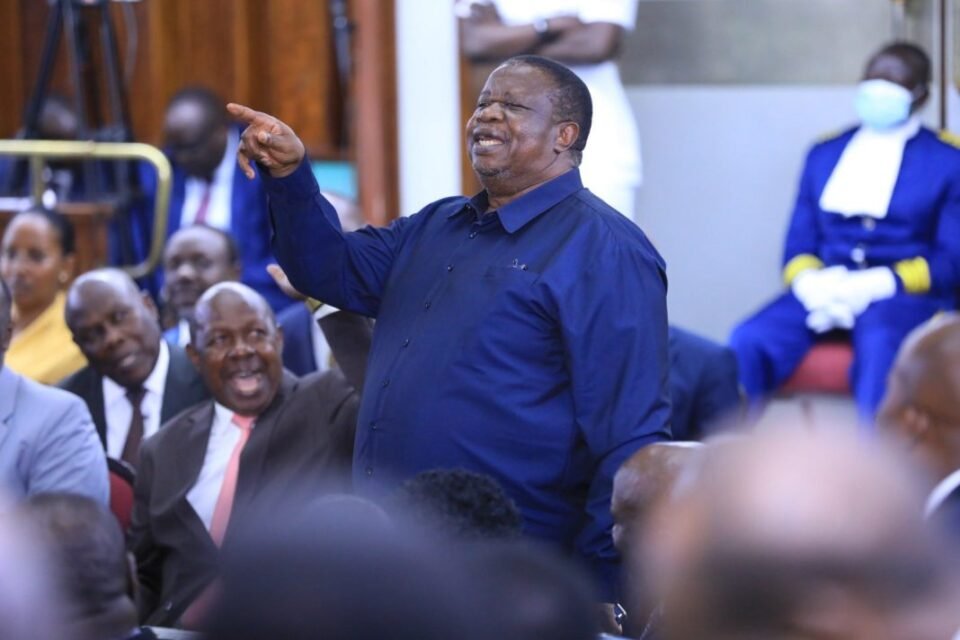On May 20, 2025, Uganda’s Parliament passed the Uganda Peoples’ Defence Forces (Amendment) Act, 2025, a far-reaching law aimed at restructuring military justice, veteran affairs, and the healthcare system for armed forces personnel. Touted by the government as a long-overdue reform, the Act introduces new institutions, streamlines military court processes, and—most controversially—permits civilian trials in military tribunals under “exceptional circumstances.” As Uganda inches closer to the 2026 general elections, the timing, content, and implications of this legislation merit closer scrutiny.
Key Provisions of the UPDF Amendment Act 2025
The Act amends the Uganda Peoples’ Defence Forces Act, Cap. 330, with several notable objectives;
- Streamlining Military Structures: It formalizes evolving administrative units within the UPDF, including the Special Forces Command and Reserve Forces.
- Veteran Affairs Reform: It decentralizes pension management from the Ministry of Public Service to the Ministry of Defence and introduces a Pensions Appeals Board.
- Healthcare for Forces: Establishes a dedicated Health Care Service and Medical Board for active and retired personnel.
- Court Martial Reform: Clarifies court jurisdiction and hierarchy, reinforces judicial independence, and creates an appellate chain extending to the Supreme Court.
- Civilian Trials in Military Courts: Introduces Section 117A to define circumstances where civilians can be subject to military law.
- Military Courts Directorate: Establishes a Military Courts Department with oversight mechanisms.
- Safeguards on Death Penalty: Prohibits executions before Supreme Court confirmation.
Reforms and Institutional Strengthening
The Act addresses long-standing concerns about the welfare of UPDF officers. By institutionalizing medical care and rehabilitation services—including for PTSD—it provides critical support to soldiers and veterans. The decentralization of pension management allows for faster, more accountable disbursements, potentially reducing the bureaucratic bottlenecks that have plagued veterans for years.
The reorganization of the military court system is another highlight. The appellate chain—running from Unit Court Martial to the Supreme Court—mirrors the civilian judiciary, fostering procedural fairness. Provisions requiring court martial judges to be recommended by the Judicial Service Commission signal a shift toward independence and transparency
The creation of new commands, administrative boards, and oversight bodies demonstrates a drive toward modernizing the defence structure. This centralization of discipline and justice within a dedicated Military Courts Department improves accountability and operational coherence.
Constitutional Ambiguity and Political Risk
Despite its reforms, the Act’s most controversial feature remains the reintroduction of military trials for civilians—an issue already deemed unconstitutional by Uganda’s Supreme Court in the Attorney General vs. Michael Kabaziguruka decision (2021)
Clause 30 of the Amendment Act seeks to add Section 117A, authorizing civilian prosecutions in military courts under broadly defined “military-related” crimes, such as illegal possession of military equipment or impersonation of a soldier. Critics, including Hon. Moses Okot, argue that this mirrors the repealed Section 117—directly contravening the Supreme Court ruling. This raises a fundamental question: Is Parliament legislating in contempt of court?
While the government insists that only civilians engaged in military-affiliated crimes will be affected, the vagueness of “exceptional circumstances” leaves room for arbitrary interpretation. Past experiences in Uganda have shown that military courts have been used to suppress dissent, particularly among political opposition, activists, and journalists.
In the current political climate—characterized by shrinking civic space, increasing arrests of opposition leaders, and heavy-handed policing—the potential for this law to be abused is significant. As Hon. Jonathan Odur warned, this could signal “the dawn of military authoritarianism,” where military courts are weaponized against dissent ahead of crucial elections.
Political Reactions and Parliamentary Dynamics
The Bill passed despite a strong opposition walk-out led by Hon. Joel Ssenyonyi and vocal objections from MPs like Hon. Jonathan Odur and Hon. Muhammad Nsereko. While ruling party MPs defended the Bill as a measure to improve military efficiency and national security, opposition lawmakers emphasized the erosion of civil liberties and judicial independence
.
The Act also controversially reclassifies serious crimes like treason, murder, and aggravated robbery as “service offences,” which—under the new law—could bring civilians accused of such crimes under military jurisdiction.
Conclusion:
The UPDF Amendment Act 2025 offers several forward-looking reforms aimed at institutional efficiency and improved welfare for Uganda’s military personnel. It represents progress in areas like healthcare, pensions, and court martial independence. However, its provisions for civilian trials in military courts, despite Supreme Court objections, present serious risks to civil liberties and democratic governance.
As Uganda approaches the 2026 general elections, the potential misuse of military tribunals to stifle political opposition looms large. The government must implement clear, enforceable safeguards to prevent abuse and ensure the military justice system aligns with constitutional standards. Without these assurances, the Act could be remembered not for its progressive reforms, but as the legal instrument that opened the gates to political repression.



